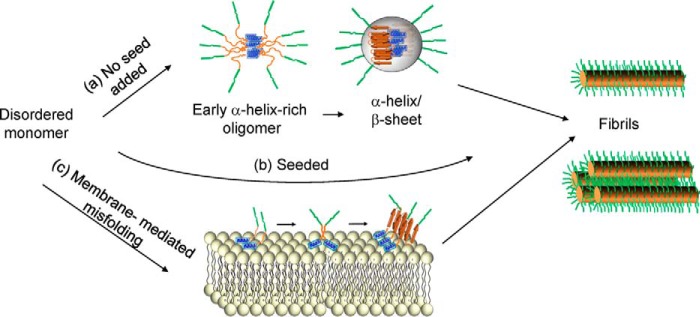Figure 5.
Representation of three different Httex1 aggregation pathways. a, Httex1(Q46) aggregation in solution is initiated by an α-helix-rich early oligomer, in which the N17 (blue) increases in α-helicity. This early oligomer contains 7–11 subunits as estimated by FCS. Subsequently, this early oligomer gradually transforms into α-helix/β-sheet-rich intermediates where the polyQ region takes on β-sheet structure. The size distribution of this oligomer was not established in this study and is arbitrarily depicted as a 10-mer. The formation of fibrils and bundled fibrils enhances the crowding for the PRD bristles (green), leading to a slow reduction in mobility. b, presence of seeds circumvents the need for intermediate steps shown in a and leads to enhanced aggregation. c, membrane-mediated aggregation begins with the membrane insertion of the N17, leading to an increase in local protein concentration and enabling encounters via two-dimensional diffusion.

